|
Abraham Au, an alumnus of the Faculty of Law, University of Malaya. Au Tian Hui, better known as Abraham, is an alumnus of the Faculty of Law, University of Malaya (UM). Graduated in 2016, his tireless efforts in fighting for the rights of the people in court defines his professional character, though what lies beneath is an empathetic soul who simply wishes to uphold basic human rights. From his lively university life filled with fervent activism, accomplished mooting, and excellent academics, Abraham’s story is surely one to take note of. Currently, Abraham is a partner at Messrs G.S Nijar since July of 2018. Originating from Skudai, Abraham is a Johorean born in a family of educators. He considers himself to be an ‘ultra-introvert’ with a ‘mediator’ personality. Alongside his few close friends and a penchant for spending time writing poetry and reading literature, Abraham has a liking to quiet activities he pursued in solitude. Little did he know, life would bring him to a career as an advocate and solicitor — a profession heavily reliant on social interaction and quite different from what he initially envisioned. Abraham’s choice to take up law resulted from a combination of the wish-fulfilment ambitions he developed whilst growing up and learning from the lessons of life. Young Abraham aspired to become a police officer or a fireman, he believed them to be cool and symbols of courage. As he aged into high school, his interest progressed to his desire in solving complicated problems like a physicist, all the while holding on to his love for literature. By fusing them, Abraham sought to emulate all these features in a single ambition which naturally steered him towards becoming a lawyer — a profession he thought was of grit and valour, capable of determining any complex questions through creative thinking. His initial exposure to the workings of a lawyer was the Perak Constitutional Crisis in 2009 wherein he saw first-hand how the dispute between high profile political figures was settled. The intriguing turn of events when the appellate court overturned the decision of the High Court, rendering Menteri Besar Nizar of PAS’ position as invalid, amazed Abraham as he realised the significance of having good lawyering skills in addressing national issues. ‘Creative arguments were presented, interpretations of the law suggested, stay applications made and granted — and the output of the same saw one MB ousting the other following each court appearance. Nothing was more interesting than that for a Form 3 student to start realising the realities of life.’ Abraham (second from the left) with his family on Graduation Day His four years at the UM Law Faculty was nothing short of colourful and exciting. Abraham was known amongst the Faculty members as an active advocate for students’ rights. As the elected Faculty Representative in the Student Representative Council 2013/2014, he was driven by his determination to attain better prospects for everyone — including himself. Although many have the impression that student activism is only geared towards involving students in politics, Abraham begs to differ. ‘My belief was that student activism goes beyond that. It must start with students being given adequate respect in terms of having a say in what affects them directly — in the curriculum, in having a comfortable environment, in not having to go to school feeling hungry or thirsty, to be assured of assistance in times of hardship. This is why student welfare was close to me at heart more than anything else.’ To Abraham, student activism should begin with ensuring the well-being of students — a matter that was not prioritised at the time. Seeing the dismal condition of Faculty facilities coupled with the neglect of the then student leaders, he took matters into his own hands and competed in the campus election to help rectify the situation. As a Student Representative, his goal was simply to enhance the quality of campus life. For that, Abraham petitioned for simple yet practical changes such as maintaining cafeteria food prices at reasonable levels, building more sheltered areas to shield students from the rain, adding more free water dispensers, and seeking the improvement of the online course registration system. His method of proposing solutions rather than simply outlining problems made him a responsible student leader in the eyes of the Faculty Management. Abraham (left) with fellow elected Law Faculty representative, Fiona Lim, after meeting with Emeritus Professor Datuk Dr Shad Saleem Faruqi to discuss the role of students in the national assembly process It was undoubtedly a daunting task to undertake under the framework of the University and University Colleges Act 1971 (UUCA). ‘When they gave you the Watikah Pelantikan (Letter of Appointment), you would feel as if you were appointed as a Minister,’ he revealed. Yet, his role was limited to mostly bridging communications between students and the Student Affairs’ Division. He explained that the biggest difficulty in executing his function was trying to fulfil the expectations that everyone had placed on him while toeing the limits of the administration. Fortunately, the Faculty Management were amenable to the changes he suggested since they were deemed reasonable. Nevertheless, the restrictions in dealing with the administration certainly opened his eyes to things he could and could not do. ‘I have experienced enough hurdles to understand that taking a hard stand vis-à-vis the administration of the university would not advance the best interest of the students, when the UUCA vests so much power in the Board of Directors in the university, giving the university management the free hand to execute or refuse to execute any administration welfare plans for the students.’ Abraham (far left) leading the solidarity rally in support of Dr Azmi Sharom in 2014 His core belief in student activism that was initially centred on welfare was gradually broadened to include the students’ freedom to express their thoughts without fear or favour — a belief Abraham still keeps to this day in his work as a constitutional lawyer. Following that line of thought, he was determined to uphold the fundamental right to free speech and expression and the right to assemble peacefully without arms — unwilling to sacrifice them even for the sake of diplomacy. ‘It came, of course, with a price to pay.’ His life took a drastic turn upon his assertion for the non-censorship of forum panellists with controversial backgrounds. The university did not take kindly to the arguments he supplied to support his views on the matter. The consequences of his actions were ingrained in his memory as he was charged for partaking in illegal gatherings before the university disciplinary tribunal. It forced him to reconsider the values he strongly held. ‘The fear of losing my education was hanging over my head. Some advised me to plead guilty and ask for a reduced sentence as there was too much at stake. Inducements came from various parties for me to succumb and join the dark side of the moon. But I saw what was really more at stake if I had succumbed — my principles.’ In the face of adversity, Abraham remained firm in his resolve. Thus, he pleaded not guilty of the charges and defended himself without a legal counsel. He was eventually acquitted due to insufficient evidence, but Abraham would never forget the tremendous support he received from the members of the Faculty who banded together to demand his release. Life was not so easy afterwards. Numerous applications to government leadership programmes and fellowships were rejected because of his rather contentious history. Alternatively, he considered settling for a stable job at a corporate law firm instead. It was then that Professor Gurdial Singh Nijar, well-informed of Abraham’s history in student activism, offered him the opportunity to assist in public interest litigation at Messrs Sreenevasan, where Professor Gurdial was a Consultant. He immediately accepted. Abraham (centre) with the lawyers of Messrs Sreenevasan Albeit scarred by the previous incident, Abraham continued to be involved in activism post-graduation, now seen through his work as a lawyer. Public interest litigation proved to be an arduous experience as the courts in 2016 were not inclined to entertain arguments from a constitutional law perspective. Despite the frustrations, it was exciting to formulate arguments. In a setting where landmark decisions such as Semenyih Jaya and Indira Gandhi were not yet propounded, Abraham fought hard to get his foot in the door. He hoped the courts would be sufficiently persuaded to consider the cases differently and not just as busybody lawsuits. The multiplicity of public interest cases he participated in varied across different areas of the law including election delineation challenges, immigration matters, and even class actions instituted by the indigenous people. Abraham (far right) together with Lim Wei Jiet defending three students of their right to freedom of speech and expression Amongst others, Abraham has appeared in courts of all levels in cases involving highly contested issues in Constitutional and Administrative Law as well as Commissions of Inquiry. He defended students who were charged and punished by the university administration for exercising their right to free speech and expression. He represented the Orang Asli in the pursuit of their customary rights. He also acted for local residents in cases of planning law, challenging overdevelopment and the gradual destruction of the environment. Abraham (centre to the right) with the lawyers acting for the residents in a defamation suit brought by an Australian gold mining company Abraham’s driven activism shined through the public interest lawsuits he counselled and co-counselled, his personal favourite being habeas corpus applications. ‘Nothing serves more joy than to see a man freed from unlawful incarceration and be reunited with his family — especially when he is deprived of personal liberty just because he takes a different stance from the government in power. That is the emotional part that motivates me to work harder on my next venture.’ Abraham (back row, far left) with the lawyers involved in a lawsuit vindicating the rights of the Orang Asli at the Court of Appeal Aside from his affiliation with activism, Abraham’s law school experience was laced with his commitment as a Faculty mooter. The Internal Moot Competition during his first year kickstarted his mooting journey and served as an introduction to advocacy in the courts. Though his team did not win in the end, he was set on participating in at least one mooting competition each year. In his second year, he joined the Novice Arbitration Moot Competition 2014. The pressure at that point was uncharacteristically high as he was swamped with the workload of the Student Representative Council and beared the responsibility of defending the championship title. Ultimately, all his hard work paid off. With the support of his teammates — Shahira Zulkifli, Amirah Ruzaimi, Marcus Lee, and Saifullah Qamar — his team clinched the champion title and won the Best Memorial Award, cementing Abraham’s prowess in mooting. Abraham (centre, left) with his teammates — Shahira Zulkifly, Amirah Ruzaimi and Saifullah Qamar — holding the champion trophy of the Novice Arbitration Moot Competition 2014 Eager for more, Abraham entered the esteemed Willem C. Vis Arbitration Moot Competition in Hong Kong in his third year. Together with a team consisting of his good friends — Lau Jia Yan, Yew Yi, Nadeem, and Marco Isidor — they braved the challenges of mooting without a coach and limited research resources. Unfortunately, they did not attain their desired outcome. This prompted Abraham to realise the challenges of mooters in the Faculty, and later provide substantive comments on revamping the mooting ecosystem. Thankfully, since their feedback, it seemed that the situation had changed for the better. ‘I am glad that the Faculty took the advice which saw my juniors having to enjoy the presence of a full-time mooting coach and the opportunity to participate in a larger variety of moots.’ His mooting journey came to an end in his final year with the Tun Suffian Moot Court Competition 2016, which was the first-ever Malaysian organised constitutional law moot competition. Due to personal reasons, he was only able to participate as a Bench Counsel, but this did not lessen the sweet taste of victory. Even though their fight was concluded in the semi-finals, Abraham was overjoyed that his team succeeded in winning the Best Memorial Award. Abraham (centre) with his teammates — Nicholas Teh, Lee Jia Chern, Romario Jonoi, and Chai Du Wei — at the Tun Suffian Constitutional Law Moot Court Competition 2016 He revealed that his interest in mooting came from the preparations in researching and writing arguments instead of the actual presentation of oral submissions. He realised the importance of meticulous research as the judges were perceptive and quick to expose anything less as nothing more than empty vessels. Nonetheless, Abraham had a talent in memorial writing and he found the process much more enjoyable than oral submissions. ‘Writing is something that you cannot learn by attending a course. It has to be developed over time and through practice. I believe that memorial writing enabled me to be able to develop my ideas in a clearer and concise manner and this skill is imperative in the practice of law later on, especially in litigation.’ Indubitably, Abraham is a man of many talents. His versatility covers not only leadership and advocacy, but also academic aptitude. He was the recipient of a Dean's List Award for Academic Excellence and the Rajasooria Book Prize Award 2016 as the best all-rounded achiever of his batch, which was indeed a privilege to be chosen for such a prestigious accolade. ‘I was extremely honoured to be awarded the Rajasooria Book Prize upon graduation even though I did not achieve a First Class on CGPA and there were obviously others who had a better CGPA than mine. But I thank the Faculty for giving me such honour as a recognition of the importance to be all-rounded as a university student — not merely on the academic aspect.’ When asked how he managed to achieve this whilst balancing his many responsibilities, Abraham emphasised on the significance of associating oneself with people who consider doing well in their studies a serious matter. ‘After all, the reason that we enter law school is simply to read law.’ Besides attending lectures consistently, he also tried to read passages from actual judgments instead of just referring to case notes. One very effective method of understanding the syllabus was to have a proactive study circle. Abraham shared that he used to have a group of people where each person was in charge of a specific topic and they would present that topic to the rest of the group later on. The resulting brainstorming session was extremely productive and helped everyone to absorb knowledge better as 'to teach someone is to learn twice over.' Abraham's results spoke of the efficacy of his methods and the efforts he exerted to maintain his grades. Throughout his four years at UM, Abraham organised and partook in countless events both inside and outside the Faculty. When questioned on which event was the most memorable, Abraham answered with A Day of Light (ADOL). It was an event organised by the late James Low, his senior who was physically disabled. He inspired Abraham with his perseverance to go against all odds and his ability to accomplish so much in his life. Intending to increase awareness and empathy for his community, the event endeavoured to instil compassion in the participants by arranging activities that would enable them to appreciate the struggles that those physically challenged endured. ‘The most unforgettable moment would be the moment I saw students actually blindfolding themselves during lectures and travelling on wheelchairs for 1 day. Everyone participated, including the faculty management who gave their unreserved support.’ Abraham is thankful to Ooi Xin Yi and the late James for having established the program, and he hopes that ADOL will remain for many years to come as the event cultivates within others a valuable lesson of connecting with the struggles faced by others. Abraham (front row, second from the left) after the conclusion of ADOL 2016 with the organising committee and the participants On the days when the stress of life befell Abraham, he found relief from futsal, a sport that he tries his best to play regularly. At other times he would indulge in video games, with self-reminders to not overdo it in case he gets addicted. Looking back at the time he spent in the Faculty, Abraham has no regrets of everything that transpired. He wisely said, ‘Everything happens for a reason. It is for us to learn from these life lessons.’ If anything, he would have wanted to spend more time with the people he held dear to in his heart as he could never compensate for the lost time. He fervidly advised, ‘So peeps, do have fun NOW — visit your families and hang out with friends. Do not give the excuse that you’re busy as you’ll be busier after graduation. TRUST ME!’ Finally, Abraham offered some tips for students aspiring to be lawyers in the future. He recommended practising clarity of mind, as the ability to convey an idea plainly in a straightforward manner will take you far in whichever area of law you plan to practice. Most importantly, remember to be humble and never be complacent with what you have achieved so far. ‘As Socrates puts it precisely, “I know that I know nothing” should be every law student’s motto.’ Abraham’s journey is filled with many ups and downs. The crucial value here is to never give up on yourself and have compassion for others. Through his hardships and his successes, Abraham remembers to be grateful to the people who helped him stand on his feet and contributed to the character that he is today. Written by Azra Athirah.
1 Comment
3/8/2021 02:08:30 am
I’m really glad to find the amazing updates about your achievements and these are extraordinary. I’m sure your family feel proud on you and whole family members and friend happy for you. Thanks for the sharing best of luck for your future.
Reply
Leave a Reply. |
Archives
July 2023
Categories
|
|
|
PhoneTel : +603-7967 6511/6512
Fax : +603-7957 3239 |

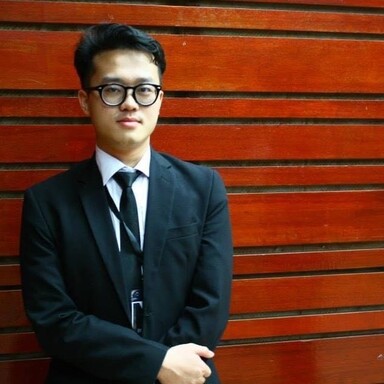
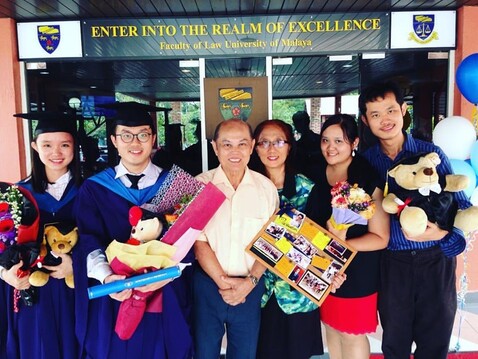
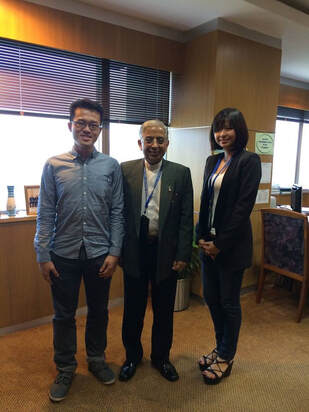
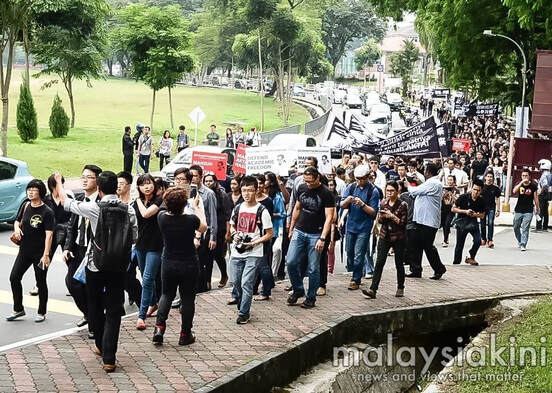
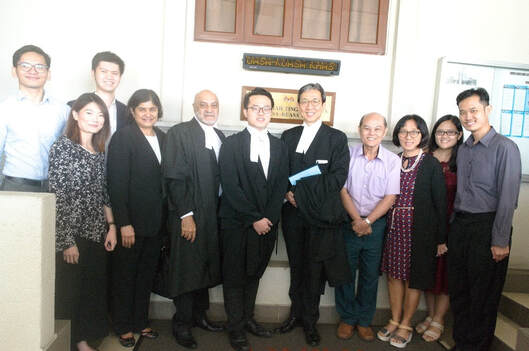
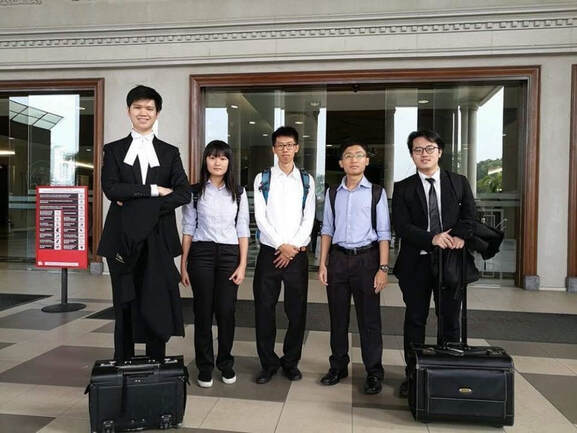
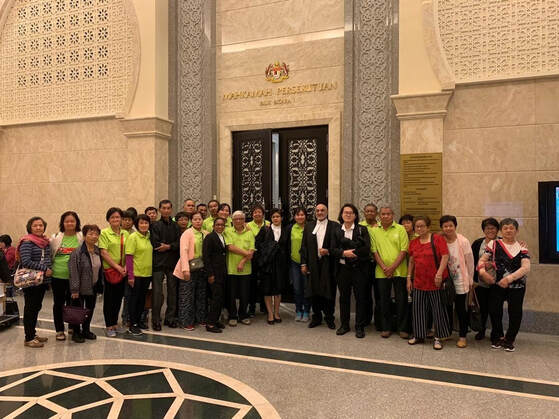
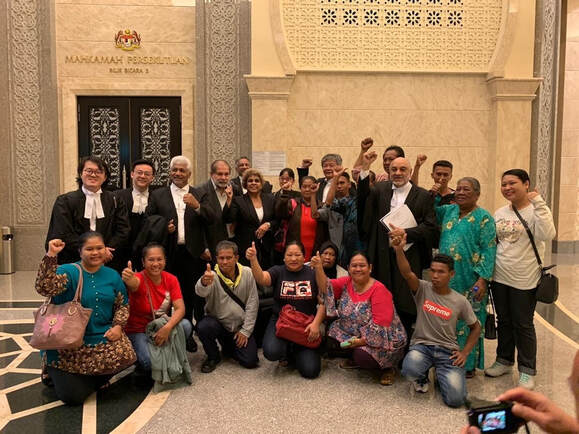
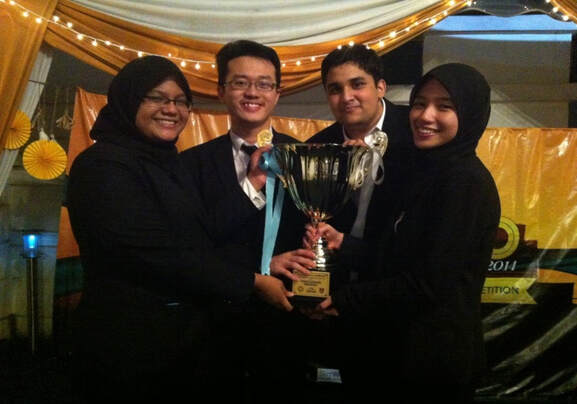
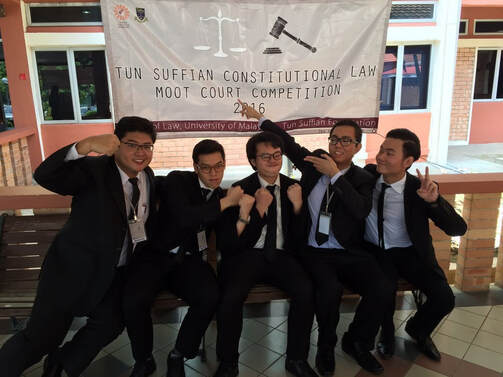
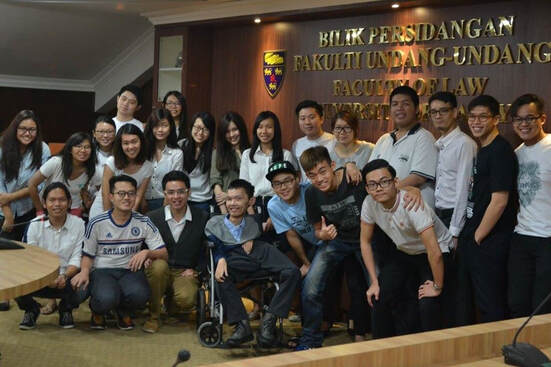
 RSS Feed
RSS Feed